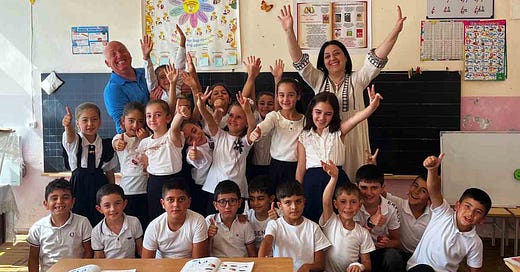What It's Like Teaching English in a Small Armenian Village
Tell us more about serving as an Education volunteer in Armenia
Hi there! I'm serving as an Education Volunteer in a small village in Armenia. About 1,500 people live here, and the local school has around 230 students. It’s called Zar Secondary School but is kindergarten through 12th grade. Most of my time is spent with students in grades three through eight, teaching English. I co-teach 5 days/week, about 3-4 classes a day (school is 9am to 2:10pm most days).
Teaching with Local Experts
I co-teach with two experienced Armenian English teachers—Luzanne, who’s been teaching for almost 25 years, and Mary, who’s taught for 15. These women know their stuff. My role is more support than lead. I step in during lessons to focus on things like pronunciation, common usage, and asking the kinds of questions that get students thinking beyond the textbook.
As in many Peace Corps countries, students are used to learning through memorization. Students usually read, translate, and repeat. I try to change that up. I ask things like, “What do you think will happen next?” or “Do you agree with this character?”—simple prompts that make a big difference in how students connect with the material. And it pushes their critical thinking skills.
A Strong School Community
My school director sets the tone. She’s a former student of my counterpart and now runs the school with care and confidence. She’s built a place where teachers feel supported and students thrive. The atmosphere is professional but warm, and from the start, I’ve felt like I’m part of the family.
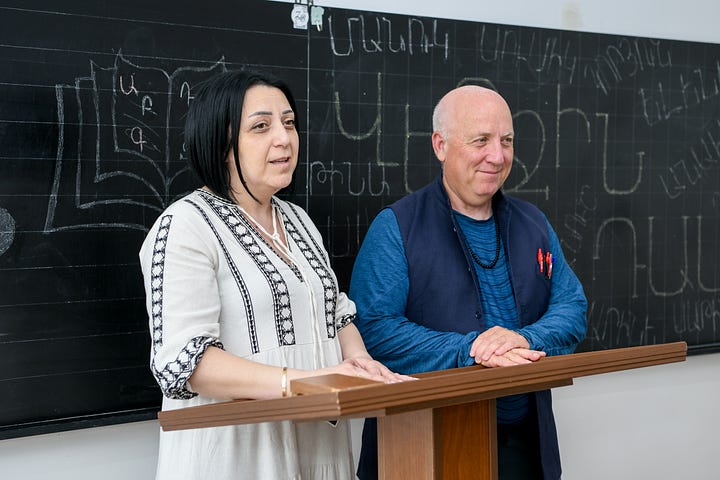
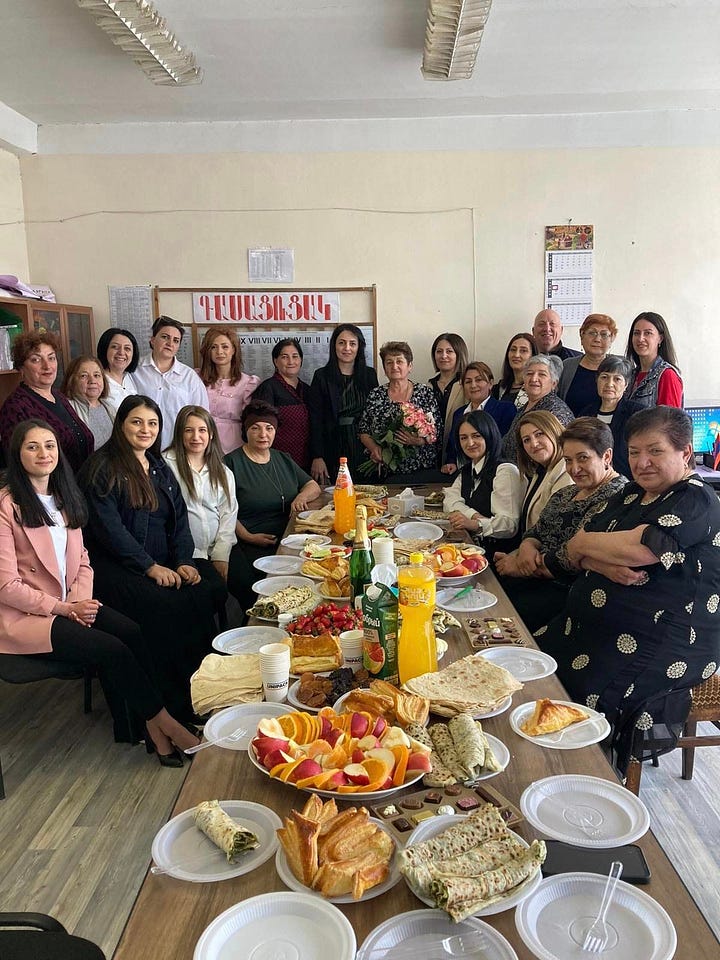
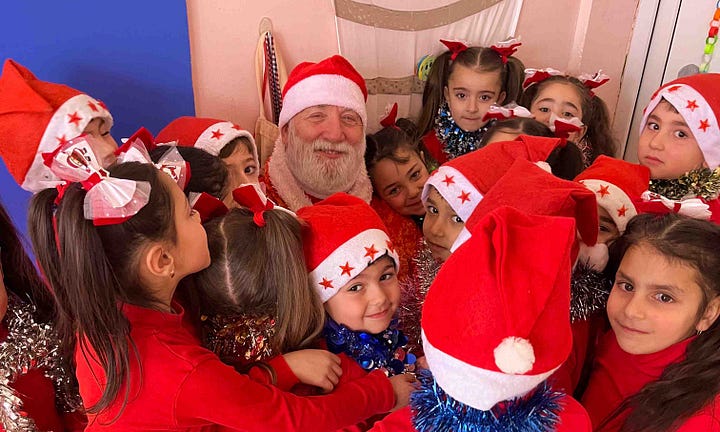
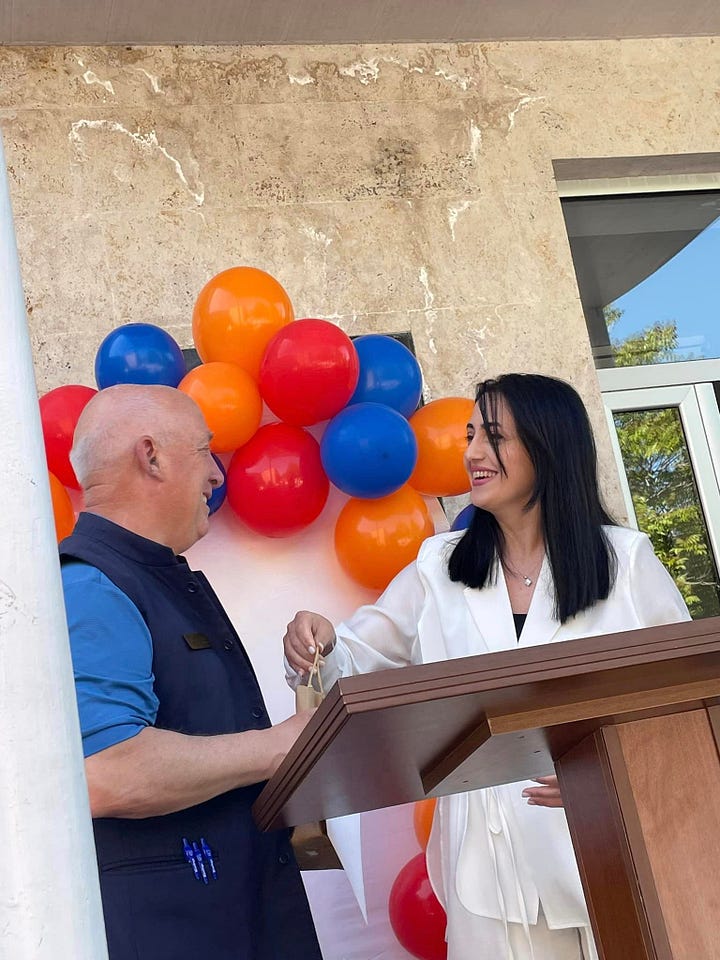
[1] With my counterpart, Lucine; [2] My school staff family; [3] Playing Santa this last Christmas; [4] With our amazing school director
After School, It’s Club Time
I teach five days a week and also run English clubs after school. My focus? Students who need extra help. A lot of after-school programs target the high-achievers, but I put in a majority of time with the ones falling behind. Because when kids start struggling early, they’re more likely to give up later and then become behavior problems. My clubs are small and informal. We go over the day’s lesson, do homework together, and play games that reinforce what they’ve learned. It’s fun, and it works.
Supporting Other Teachers
Outside the classroom, I’ve jumped into teacher training. Last year, another volunteer, Camden, and I put together a training session in a nearby city. Teachers from six schools came. I also helped with pre-service training (PST) for new Education Volunteers—those new folks are still figuring it all out.
This experience has been everything I hoped for—and more. Teaching here isn’t just about grammar and vocabulary. It’s about building confidence, encouraging curiosity, and helping students and teachers see what’s possible. I’ve found real meaning in this work, and I’m thankful to be part of this village community.
This is part of a series of questions I ask many volunteers about their service. You can find the full interview HERE, and many more at WanderingTheWorld.com
If you have any questions about Peace Corps, PC service, or Armenia, please leave a comment. I would be happy to tell you more. And if you like these ‘tales,’ please tell your family and friends.

